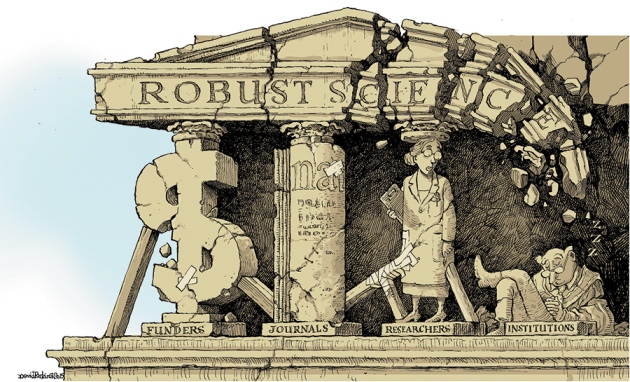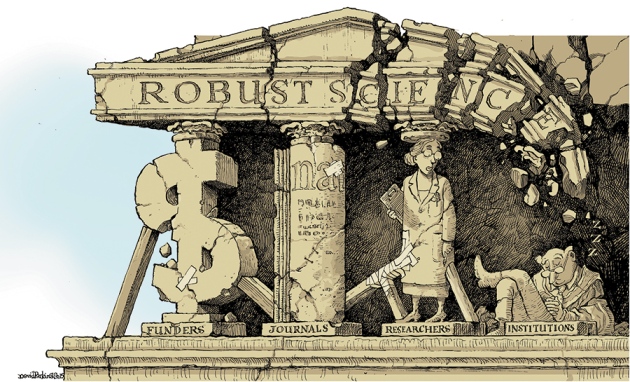
Bioethics and the reproducibility crisis
Are bioethicists a spineless lot?
 Nature / David Perkins
Nature / David Perkins
According to the mayor of Chicago, Rahm Emanuel — who is linked to bioethics through his bioethicist brother Ezekiel Emanuel — “You never let a serious crisis go to waste.”
In this case the crisis is the reproducibility of published results in the biological and medical sciences. According to a recent comment in Nature, “An unpublished 2015 survey by the American Society for Cell Biology found that more than two-thirds of respondents had on at least one occasion been unable to reproduce published results. Biomedical researchers from drug companies have reported that one-quarter or fewer of high-profile papers are reproducible.”
It is not a new crisis, either. In 2005 in one of the most famous papers ever published in PLoS, medical statistician John Ioannides asserted that “most research findings are false for most research designs and for most fields”.
But the humbling of scientists offers an opportunity to bioethicists – if only they would grasp it, argues Charles Foster in Oxford’s Practical Ethics blog.
“Bioethicists should seize this opportunity to assert their primacy: to say that, when the papers seen as canonical have been shown to be wrong, or, at best, right only in one laboratory in one week, their own philosophical conclusions, immune (as they should be, and sometimes are) from fashion, experimental error, commercial interest, and grounded on essentially timeless conclusions about what constitutes human thriving, should top the bill in debates about the direction of science.
“There was never any legitimate place for the premise: ‘If you can do it, you should do it’. The worthlessness of much supposedly unquestionable science should now make that premise wholly redundant.”
But Foster says that his colleagues are unlikely to seize the opportunity because they suffer from a deplorable lack of self-esteem. “Bioethicists are used to following meekly and respectfully in the wake of science – to offering, at best, some tentative suggestions as to how scientific genius might best be channeled.”
https://www.bioedge.org/images/2008images/TH_reproducibility343.jpg
Creative commons
https://www.bioedge.org/images/2008images/GIP-2_(1).jpg
bioethics
reproducibility
- How long can you put off seeing the doctor because of lockdowns? - December 3, 2021
- House of Lords debates assisted suicide—again - October 28, 2021
- Spanish government tries to restrict conscientious objection - October 28, 2021
